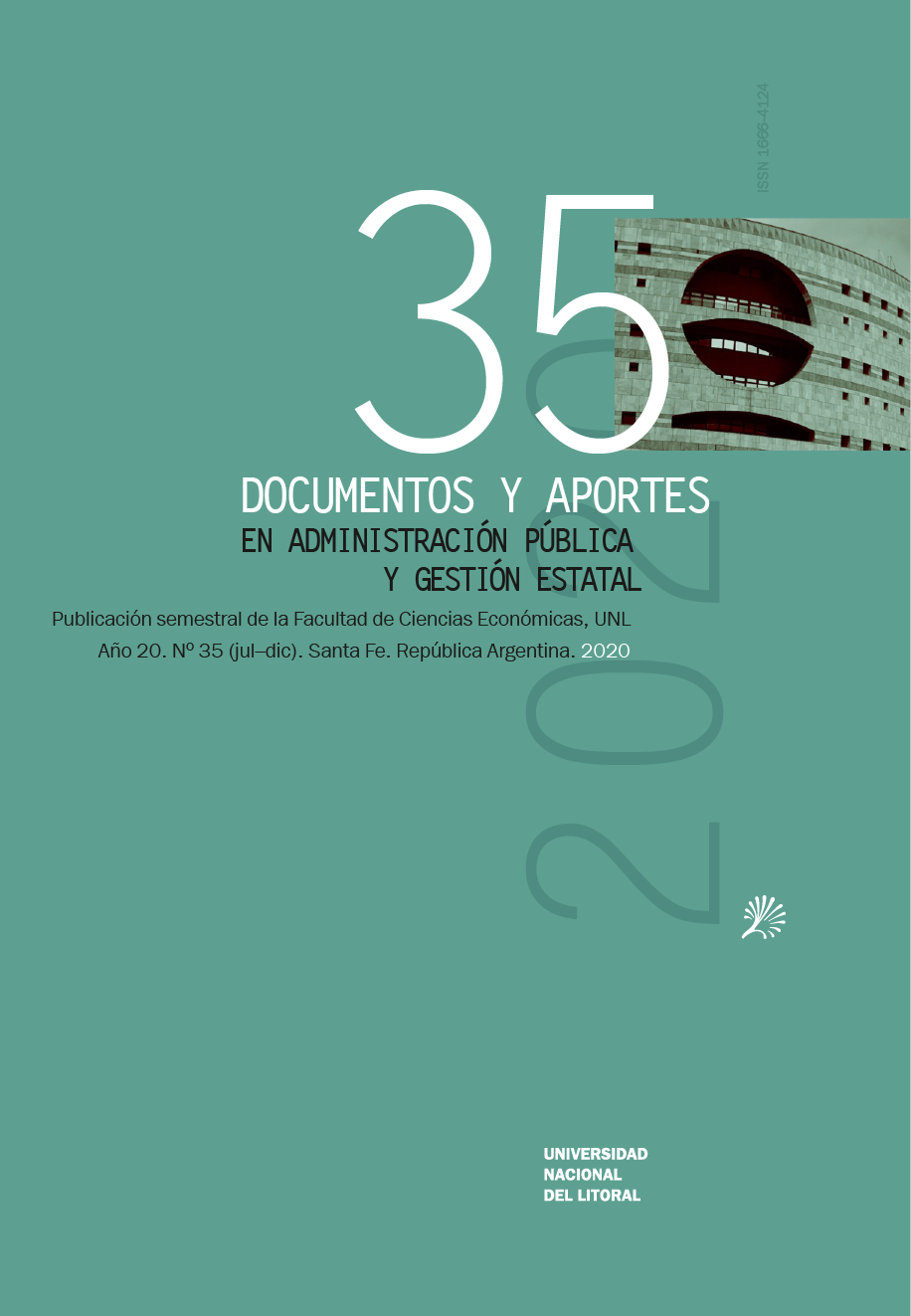A proposal for an institutional coordination analysis model in the implementation of social policies. The case of childcare policies in Argentina.
DOI:
https://doi.org/10.14409/daapge.2020.35.e0002Keywords:
childcare policies, institutional coordination, policy design, fragmentation, integralityAbstract
In recent times, the demand for child care policies has upraised in the public debate, understanding that this would have a positive impact on children well-being and on the employment possibilities of their mothers. Childcare policies are those that guarantee time, money and spaces for care, which implies the articulation between parental leaves policies, cash transfers programs and early child education and care services. With this, to solve the child care problem based on these policies programs results in a complex challenge of institutional coordination. This paper seeks to analyze the level of institutional coordination of child care policies in Argentina, and to identify the main difficulties in order to design a comprehensive strategy of childcare. For this purpose we create a model of analysis of the level of coordination among programs. Based on the analysis developed, we found that the childcare programs in the country present incipient and weak institutional coordination features.







